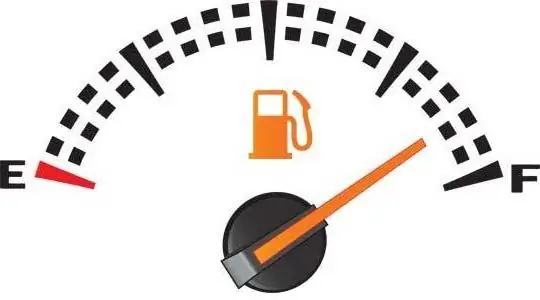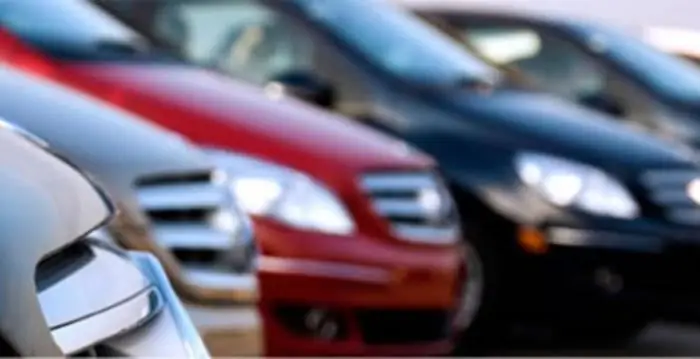2026 Author: Erin Ralphs | ralphs@carsalmanac.com. Last modified: 2025-01-22 21:14:18
The German auto giant, which until then produced only cars and motorcycles, in 1999 decided to start exploring the off-road niche. We are talking about the X5 model, which later became, in a sense, the quality standard in this area. Consider in the material such an important aspect as fuel consumption per 100 km. On BMW in the fifth version of all-wheel drive, several types of motors are installed. Let's discuss some of them in more detail.

Variety of patterns
Since the Bavarian concern has a huge number of models, in a small article there is reason to consider only one. And the choice fell on the X5, as one of the most voracious representatives of the motley BMW family. X5, fuel consumption per 100 km for which ranges from 10 to 40 liters, is famous for its good power and engine response, as befits a mid-engined crossover. However, as can be seen, the spread in consumption is quite large. Let's figure it outwhy the numbers fluctuate in such a wide range.
Petrol
The rumors that gasoline engines are much more voracious than diesel ones have a very real confirmation if we talk about the BMW X5. Indeed, many owners report gigantic consumption figures. So, for a three-liter engine installed on the X5 in the back of the E53, that is, in the first generation of the crossover, produced from 1999 to 2006, the readings fluctuate within the following limits. The highway is 12-13 liters, and in the city - 16-20. Well, more - more.

Fuel consumption per 100 km on a BMW with a 4.4 engine gives the following alignment. Highway - 14-16, city - 18-22. The 4.8-liter version shows record results. Here, the flow rate ranges from 21 to 40. It all depends on the driver's persistence in pressing the gas pedal and the mode of engine use. The most "evil" in terms of gluttony is sports. All figures, of course, refer to the operation of automatic gearboxes, since the consumption is usually somewhat less on the "mechanics".
Diesel
As for the more economical option using a diesel engine, everything is not so dramatic. It also depends a lot on the mode of operation. But let's look at some numbers. Fuel consumption per 100 km on a BMW diesel version also depends on the terrain factor. So, on the highway you can spend only 8-10 liters. The city, as usual, is more "tough" in terms of fuel losses. Here you can burn from 12 to 16 liters of high-quality diesel fuel. All, again,depends on the racing preferences of the driver and his luck in urban traffic.
Conclusions
Fuel consumption per 100 km on a BMW, if we consider voracious crossovers, whatever one may say, is very rather big. Especially if you take a used X5 with a gasoline engine, which, by the way, after 50 thousand, gradually begins to “eat” oil as well.

As for another interesting representative of the Bavarian BMW X6 crossovers, fuel consumption per 100 km is somewhat less for him, if we talk about the gasoline version. The three-liter engine is characterized by 8-10 on the highway and 14-16 in the city. All of these are big numbers. So, as you know, you have to pay for chic.
Recommended:
Real fuel consumption of "Lada-Grants" per 100 km

Automatic gearboxes (automatic transmissions) have been mass-produced since the middle of the last century. A lot has changed in the intervening time. The cars have become different, and the transmission has become much more perfect. World auto giants all this time did not cease to amaze with new products. Only in Russia the word "automatic" was steadily associated with the name of the great weapons designer. And so it happened. In 2012, the first domestic car of this type, the Lada Granta, rolled off the assembly line
UAZ "Hunter": fuel consumption per 100 km and specifications

UAZ "Hunter" SUV: description, history of creation, fuel consumption, features. Domestic SUV UAZ "Hunter": specifications, photos, interesting facts. How to reduce fuel consumption on UAZ "Hunter"?
"Nissan Qashqai" - fuel consumption per 100 km: norms for automatic and manual. Nissan Qashqai

"Nissan Qashqai": fuel consumption per 100 km, specifications, modifications, photos, owner reviews. "Nissan Qashqai 2019": device, design features, engine, recommendations for saving fuel. Nissan Qashqai: description, automatic and mechanics
Why increased fuel consumption? Causes of increased fuel consumption

A car is a complex system where each element plays a huge role. Almost always, drivers face various problems. For some, the car drives to the side, others experience problems with the battery or exhaust system. It also happens that fuel consumption has increased, and suddenly. This puts almost every driver in a stupor, especially a beginner. Let's talk in more detail about why this happens and how to deal with such a problem
Fuel: consumption rate. Consumption rates of fuels and lubricants for a car

In a company where vehicles are involved, it is always necessary to take into account the cost of their operation. In the article, we will consider what expenses should be provided for fuels and lubricants (POL)

